|
In this new series, Movie Nostalgia: Vick's TOP picks, I will review my personal favorite films past and present.
For the first installment, I am going to talk about V for Vendetta, one of my absolute favorite superhero films based on a comic book / graphic novel of the same name by Alan Moore and David Lloyd. Summary: The story follows two characters set in a Dystopia of an Orwellian London in the not so distant future. First, we have the story of V (played by Hugo Weaving), a vigilante anti-hero in a Guy Fawkes mask, manifests at England's darkest hour, one unsuspecting November 5th, to start a revolution. Second, we have Evey (played by Natalie Portman), an unassuming factotum working in London's premiere media television station BTN (Britain Television Network). In the movie, we are never told Evey's position, but it's high enough to have security clearance and also be invited to the network's highest rated showrunner, her boss, Deitrich's (played by Stephen Fry) home for a private supper. The film opens with Evey on her way to Deitrich's for a fanciful evening. On the way to his house, she deliberately ignores the strict curfew of the State Controlled society, and gets cornered by three "Fingermen," or secret police of High Chancellor Adam Sutler (played by John Hurt), who corner Evey in a dark alley. As the Fingermen threaten to make Evey if not the sorriest ass in London then the sorest, a vaudevillian voice rings out down the dark alley and out steps a dark figure in a cloak and a Guy Fawkes mask, quoting Shakespeare's Macbeth. His name, which we discover momentarily, is simply V. His opening line is from Macbeth, Act I Scene 2, and V says: "The multiplying villainies of nature do swarm upon him... disdaining fortune/with his brandish'd steel, which smoked with bloody execution..." V saves Evey, and then introduces himself. He invites her to listen to his concerto and takes her up onto the roof of a nearby building. She begins to get worried when he whips out a conductor's wand and begins conducting the thin air. Thinking he's a crazy person she is about to flee when, low and behold, over the government speaker system comes a bit of classical music. V conducts the track with gusto and then, without warning, at the crescendo the instruments swell and with a boom, the Old Bailey across the street explodes and Lady Justice is brought tumbling down as V laughs and giggles with uncontrolled laughter. From here, we begin to learn more about both V and Evey. We learn what is driving V to enact his particular brand of vigilante terrorism, and we watch Evey transform from a terrified young woman living under the fearful domination of an authoritarian police state into an independent and fearless heroine willing to stand up to the powers that be, and who is no longer afraid of her own shadow. The story that unfolds is both epic and scope but also has a timeless quality, that speaks to you regardless of your age and where you were born. The characters are so well written that you'd have a hard time believing the source material, which was excellent to begin with, was a mere comic book (or rather, graphic novel for the aficionados). It's my opinion, however, the the story was much improved by the Wachowski sibling's most excellent script, who streamlined the narrative, pulled out the important characters, and did away with needless story tangents that bogged down the plot in the original graphic novel. I can honestly say, this is one of the rare cases where the film surpasses its source material in terms of quality and enjoyability. In fact, the Wachowski's improved upon the script in all the ways that matter. They made the themes in the graphic novel pertinent to a new generation of audience, and they made the characters more enduring. Evey is no longer the cliche downtrodden prostitute that she is in the comic book, she is now a vibrant young career woman making it on her own in a hard city during hard times. Further, V is no longer just a simple-minded anarchist, but rather, he uses anarchy as a means to his own ends in a sophisticated manner lacking in the comic book. Indeed, Alan Moore, who can be a bit pretentious and who seems to always want verbatim renditions of his graphic novels put onto the silver screen -- never mind that he doesn't seem to understand what an adaptation is or get the fact that the mediums are entirely different, or that stories as convoluted as his V for Vendetta only truly work when you trim the fat -- boycotted the film since it veered from his oh-so sacred source material. It fact, the very idea of it bothered him so much he demanded his name be omitted from the credits of the film. I suppose I cannot blame him too much. He did have to endure both the horrendous film renditions of his The League of Extraordinary Gentlemen and the abominable Johnny Depp vehicle To Hell, which were both stunning box-office flops. But I can blame him for underestimating the genius of the Wachowski's and the prime talent assembled under their careful watch as Executive Producers of the film. But apparently, after all the rave reviews, Alan Moore did see it, as he seems to offer commentary on it in numerous interviews, although he remained unimpressed. In the original graphic novel, V's cause was to instill anarchy, not freedom. Moore was critical of the movie for changing what he called the "anarchy vs. fascism" structure of his graphic novel into what he saw as an exploration of "American neo-liberalism vs. American neo-conservatism" and said that should have been set in the U.S. instead of Britain. But Moore should watch the film again more closely. V never claims to be fighting for freedom. Rather, like the comic, he is merely seeking revenge. In his vendetta against those fascists who enslaved England and who had created him in the process, and who had killed nearly a 100,000 innocent lives and covered it up, V uses anarchy as a tool to destabilize Sutler's government and turn everything on its head. He uses the people's desire for freedom to motivate them to his cause to disrupt the government via a state wide insurrection. By throwing everything into chaos, pitting the people against their government (something that gets highlighted when V mentions that "People shouldn't be afraid of their governments. Governments should be afraid of their people..."), V gets everyone distrusting everyone else, and is able to play their fears against them as he systematically proceeds to assassinate all those who were behind the atrocities inflicted. This, however, doesn't necessarily mean he wants complete, unchecked, freedom to replace the cold cruel fascism that he deliberately attempts to foil. In fact, besides his lust for vengeance, it doesn't appear V has any other motives (he falls in love with Evey, but even then he cannot change himself into anything other than he is -- not even for her). Rallying the people against Sutler's regime was simply a means to an end for V. Whether that ends in a Free Democracy replacing a tyrannical regime or something else entirely really doesn't seem to be a concern of V's. In fact, given his exchanges with Evey, it is pretty clear that V doesn't have any aspirations beyond seeking revenge and the total destruction of Sutler's criminal empire. Now, it is no surprise that Sutler, who took control of the country in its time of great weakness for dubious reasons, is made to resemble a real world Adolf Hitler, both in fascist political ideology and in look and tone. Even his speeches are given with the same Hitlerian inflection and fanatical intensity. But contrary to what Alan Moore might say, It's not at all clear to me that V is fighting for freedom, certainly not for democracy, since V isn't fighting for the people. He's fighting for himself -- for vengeance. He wants to rally the people to HIS cause. He's not there, like the Dark Knight, to fight for their cause -- he wants them to fight for him -- as a means to an end in his plot of vengeance, a vendetta, not in vain, but held as a votive (i.e., the fulfillment of a vow -- he even says as much in his initial introductory speech to Evey) . At one point he even admits to Evey that he is incapable of changing himself and thus must carry out his task to the very end, even if it means his death. When she asks him if he is going to kill more people, he says yes. For V, it is simply about destroying those that wronged him and harmed so many innocents, regardless of the consequences -- regardless of the rules -- and this is what makes him a true anarchist. WHAT I LIKED: Admittedly, I enjoyed nearly everything about this film. It really is a what we would call a sleeper hit. Nobody was expecting a comic book adaptation in 2005 that wasn't pushing a flagship title or series. Christopher Nolan's Batman Begins shattered records and kicked off one of the most successful comic book to movie reboots of all time. In this same year we saw two complete comic book to movie duds, the god awful Fantastic Four movie and the stylized and fun, yet beleaguered by stiff competition and poor word of mouth, Sin City directed by Frank Miller and Robert Rodriquez. While it seems Batman Begins was designed for mainstream audiences, Sin City was meant as a love letter to fans, and as for the Fantastic Four, this inadvertent comedic insult was probably just a bad mistake. Meanwhile, between the releases of these comic book film adaptations came the little known V for Vendetta, but like a magician pulling a rabbit out of his hat, it upset the box office and surprised critics and audiences alike who all gave V for Vendetta high praise and rave reviews. V for Vendetta currently holds onto an 8.2 rating on IMDB and an audience score of 90% on Rotten Tomatoes. Pretty good considering that Batman Begins, a much bigger film reaching an even wider audience, currently has a 8.3 IMDB rating and a 94% audience rating. This means that V for Vendetta, a virtually unknown comic book adaptation and avant garde political-science-fiction-thriller, is practically on par with what is considered to be one of the greatest comic book movie adaptations of all time, the Christopher Nolan Dark Knight films. But online metrics shouldn't determine whether or not the film is a success with you, just with the public in general. Like Nolan's Bat-verse, V for Vendetta strives for hyper-realism. It creates a believable world and moves as far away from comic book camp as possible. Whereas one might say Nolan's films move so far away from comic book camp that by the third film they come full circle again, V for Vendetta stays comfortably in that realistic world it constructs for itself. Another thing I absolutely loved was Hugo Weaving's performance as V. Needless to say, the entire film V stays behind the Guy Fawkes mask, yet his operatic over acting and his vaudevillesque voice all add to an extremely charismatic character expertly acted by Weaving. In fact, the very vaudevillian nature of V, and his constant quoting from film, literature, and even non-fiction, make for a fascinating character that seems almost too good to be true. In fact, throughout the whole film, up to the reveal of who V really is, you get the keen sense that we are dealing with someone that is more than just a mere mortal, we are dealing with Friedrich Nietzsche's Ubermensch. Besides his mysterious identity and his super-intelligence, V also has super-speed and super-strength. But rather than relying on his physical element, V utilizes his whit and his brains making him an extremely compelling cinematic figure. In fact, there are very few movie performances which leave me speechless and awestruck, but this is definitely one of them. And even though V wreaks havoc on the guilty, and murders people in cold blood, and creates chaos and mayhem while feeding the police clues which reveal the dark sins of the government, and even after he tortures his best friend, Evey, you still can't help but find him charming and be drawn to him. V is the epitome of the anti-hero, and it is to the Wachowski's credit that they understood the character better than the own character's creators. WHAT I DIDN'T LIKE: Honestly, I'd have to get extremely nitpicky to find much wrong with this film. It is a stunningly beautiful film. It has two unexpected love stories interwoven with a gripping distopian drama that is both frightening as it is engaging. It never really comments on the politics except only to say that wrong must be vanquished and that right must prevail, and it lets you decide if you agree with V or not in how he goes about doing that. The film writes Evey as V's polar opposite. While she is afraid, he is brave. While she is weak, he is strong. Eventually, he uses questionable tactics to make her into him. After she has a panic attack, he takes her to the roof, and she stands out in the rain. There is a timely scene flashback as V ruminates on his own creation out of fire, a stark contrast to Evey's new form, emerging anew in the cleansing rain. But even then, Evey informs V that she cannot stay with him. V's way is not Evey's way, and although they become equals in terms of their power -- they still remain opposites. For she keeps to the light of goodness while he will put one foot into the darkness so that he might use evil to fight evil, or, fire to fight fire as the symbolism would seem to suggest. Upon fulfilling a promise to return one year later on the eve of his revolution to share a dance, Evey kisses V, the ultimate form of forgiveness. Here we realize she has become stronger than V. She can change, but he cannot. She can forgive, but he cannot. Indeed, she is willing to accept him even after all he has done to her -- even after torturing her -- she still finds room in her heart to love the person beneath the mask. Later, upon trying to take his mask of to behold this visage of this ole vaudevillian veteran, V stops her, and tells her that although there is flesh and bone beneath, it is the idea that is more important. Later, it seems Evey internalizes this advice, when asked by Inspector Finch who he was she informs him that he was her deceased parents, her brother, herself, even Inspector Finch -- he was everyone. We assume this is because the ideals that V represented are universal and, in her own way, Evey has come to terms with the fact that the man behind the mask was the mask--or at least what that mask symbolized. At the same time, the film makes let the audience decide what ideals V embodied and allow the viewer to glean whatever they like from their own personal revelations. This works extremely well for a film like this, with its heavy distopian themes and counter-cultural ethos in which people simply go along with a Fascist regime because they are too fearful to do anything else. The film allows us to conclude what we want about V, and whether he was a hero, an anarchist, or a terrorist, if not all of these things, is left for us to decide. WHAT BOTHERED ME: If you haven't seen the film, this is going to be somewhat of a spoiler. But Adam Sutler seemed, in the end, to come off as a pansy ass and a coward. I can only guess that they were trying to emulate Hitler's kind of cowardice when, in his last moments, Hitler chose to commit suicide rather than face being put on trial for his crimes. If Hitler's evading justice wasn't cowardly enough, the filmmakers wrote Adam Sutler as a sniveling weakling shaking in his boots once he was stripped of his authority and was brought before V. Personally, I felt this simplified the character into a bad pastiche, a mere cliche of the super-villain. But on the other hand, it seems to work in the plot's favor. The almost comical level of quivering of Sutler seems to reflect V's own vaudeville spirit, and this leaves only Creedy, the true evil in this film, for V to contend with. In the end, Sutler was just a power mad fanatic, but the real power was in the hands of the scheming sociopath who was without conscience and who had an unending blood thirst -- since it was Creedy's own diabolic suggestion that the government use biological weapons on its own people to instill mass panic and fear so that Sutler could seize power and then, conveniently enough, turn around and provide the cure and secure the public's loyalty and trust (not to mention dependency) once and for all. Consequently, Creedy's plan to infect everyone and search for a naturally resistant donor just also happened to be the catalyst that lead to the creation of prisoner, code-named, V. And subsequently sealed Creedy's fate. One might even wonder if what seemed like V's plot to assassinate the High Chancellor may have just been a ploy to get his hands around Creedy's throat. In the end, however, the way Sutler was portrayed really doesn't matter so much since it becomes clear to us that he was just another pawn in V's scheme, another domino to be toppled in V's intricate plot for revenge. FINAL TWO CENTS: I HIGHLY recommend the film V for Vendetta for anyone interested in excellent characters, a dark distopian story with a great anti-hero, a brilliant cast of actors, and an excellent script. This movie succeeds on all levels, while offering a new take on some old themes, which is why it remains my all time favorite comic book movie and one of my top favorite films.
1 Comment
|
Tristan VickBy day I am an educator and a cultural ambassador. By night I entertain notions of being a literary master. In reality I am just a family man and ordinary guy who works hard and loves writing just about as much as I love my family. Just about. AVAILABLE NOWNEWSLETTER
|
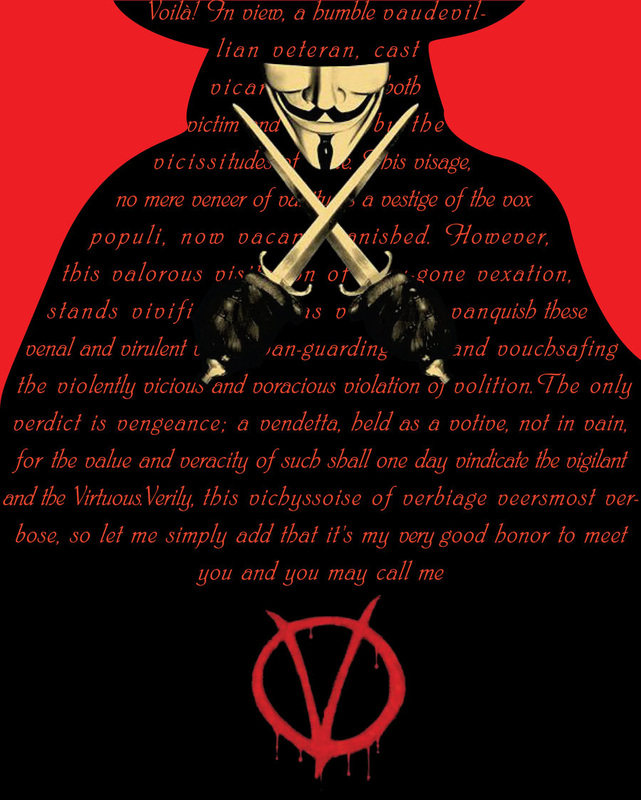
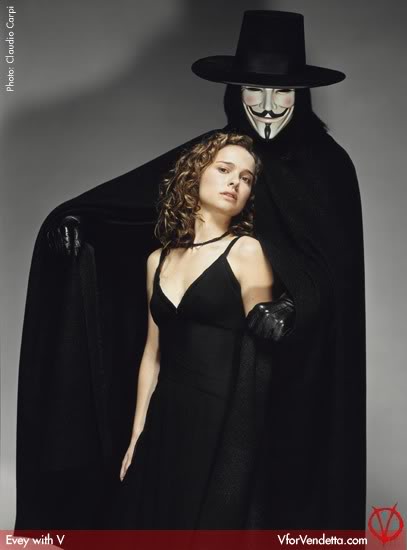


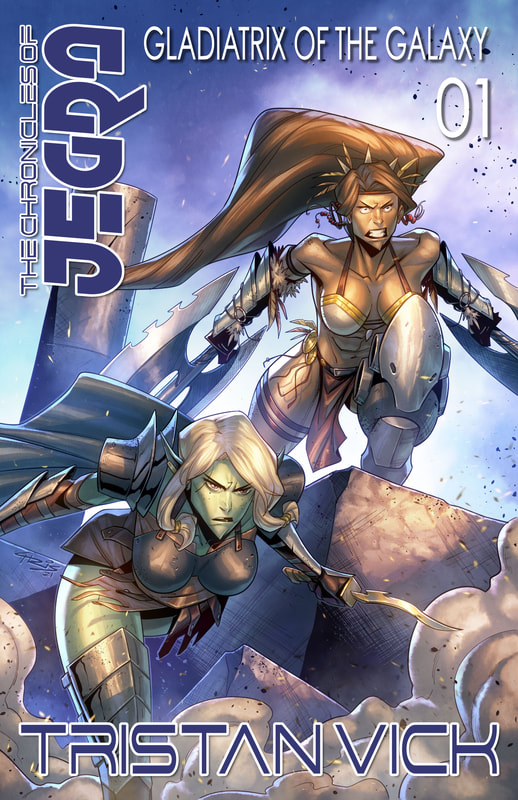
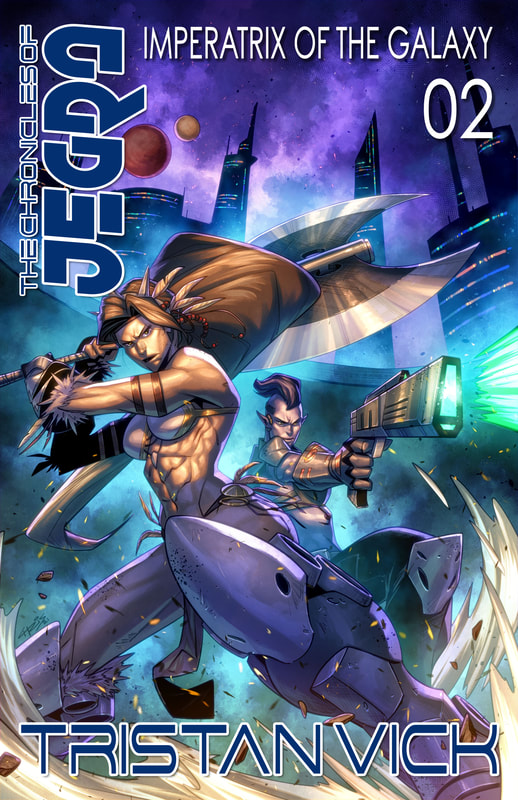
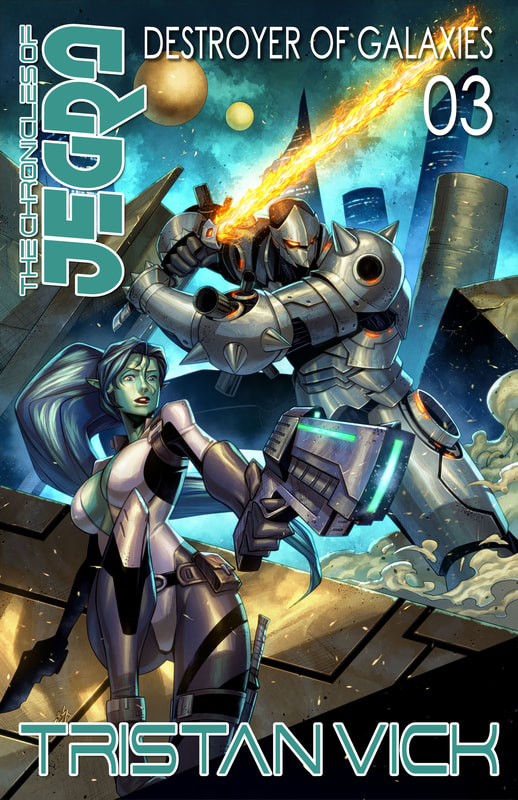
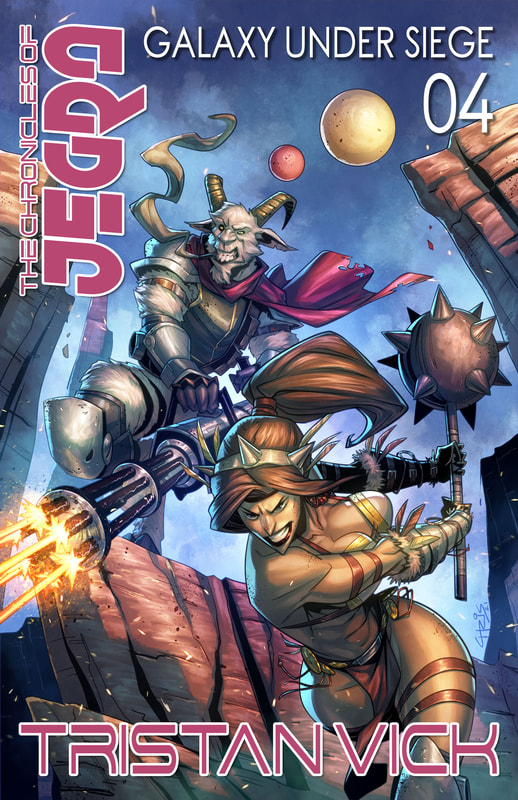
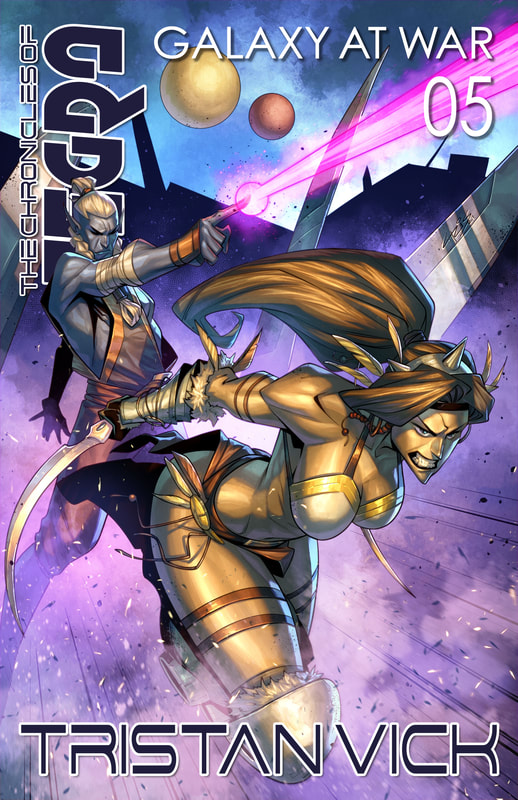
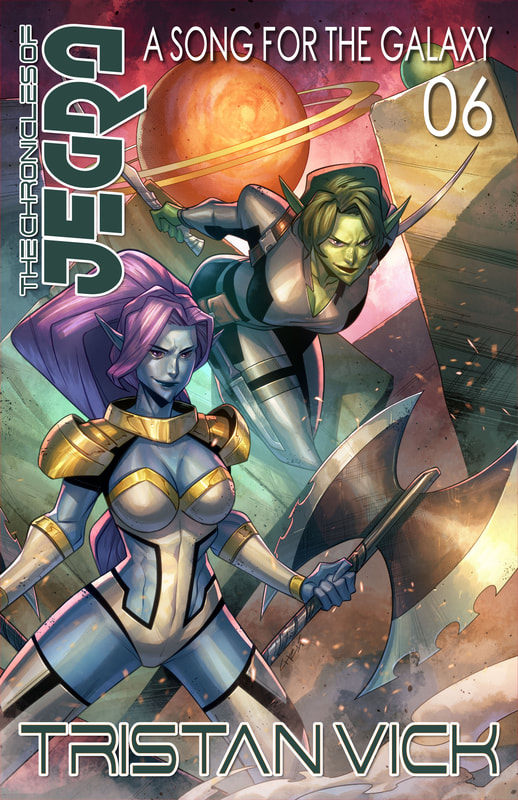
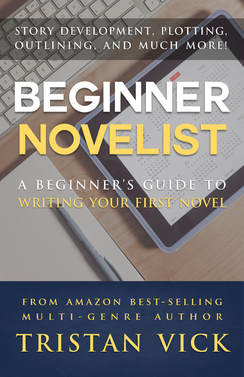
 RSS Feed
RSS Feed

